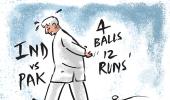'If there were ever a PR exercise to fix the seemingly irreparable image of Australian cricket in the aftermath of the most notorious on-field scandal in recent memory, then this is it,' observes Dhruv Munjal.
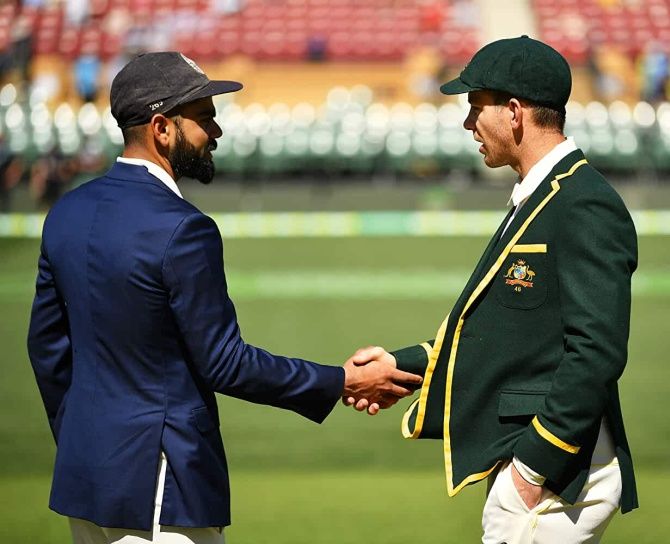
Welcome then. Say hello to the nice guys, the easily lovable and eminently honourable type.
Only movies can make Buddhist monks out of Aussie cricketers, and The Test: A New Era for Australia's Team (now streaming on Amazon Prime Video), does a fine job of it.
If there were ever a PR exercise to fix the seemingly irreparable image of Australian cricket in the aftermath of the most notorious on-field scandal in recent memory, then this is it.
A warm, slightly mawkish documentary film with no villains, and heroes galore -- a bit like watching an Aussie side made up of 11 Sachin Tendulkars.

Which isn't to say that The Test is no fun.
Given how artificially enhanced cricket broadcasting has become in recent years, any peek into what happens beyond the field is always welcome, particularly when it involves a once-world-class team desperate to redeem itself not only in front of the world, but also in the eyes of its own people.
Amazon had apparently planned the documentary much before the ball-tampering saga came to light, but in a way the infamy of Cape Town lends the film a direction that it may have otherwise lacked.
Not to mention, with the suspension of Steve Smith and David Warner -- two of Australia's best players -- the kind of vulnerability the incident spawned, something that the makers unfailingly highlight, successfully conjuring up an "against-the-odds" narrative that normally sits well with the audience when it comes to documentaries of this sort.
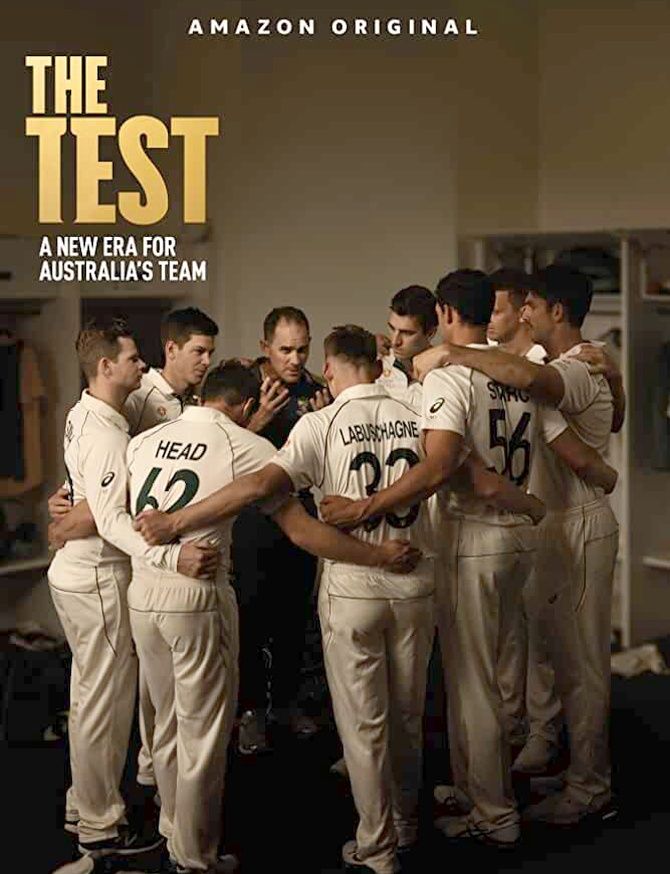
It may well have been the trigger for Amazon to eventually go ahead with the film, but the Cape Town blemish itself only makes a brief appearance here.
A somewhat diluted recap of the entire episode is followed by Smith and Warner crying their eyes out in front of the world's media, before the cameras cut straight to Justin Langer's unveiling as head coach -- the heralding of the 'new era' that the film's title promises to showcase.
Wise words are said, sermons are delivered and a new unofficial code of conduct with a strict emphasis on player behaviour is put into place.
Just that the moral lectures don't quite translate into cricketing success in the immediate term -- Australia are marmalised 5-0 by England in their ODI duel, with the mighty hosts even coming close to piling up 500 in one game.
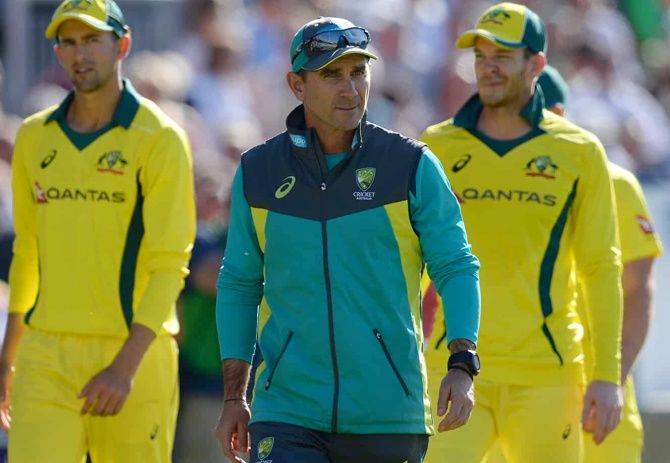
The Test is hardly novel in terms of its concept. Amazon has done something similar with the likes of Manchester City and the New Zealand rugby team in the past.
Nor is it startlingly revealing in a cricketing sense; tactics and match planning are in short supply here, with an extensive focus on team building and unity instead.
Even then, an all-access pass to the Aussie dressing room and the players' quest to embrace a new cultural ethos makes for an interesting watch.
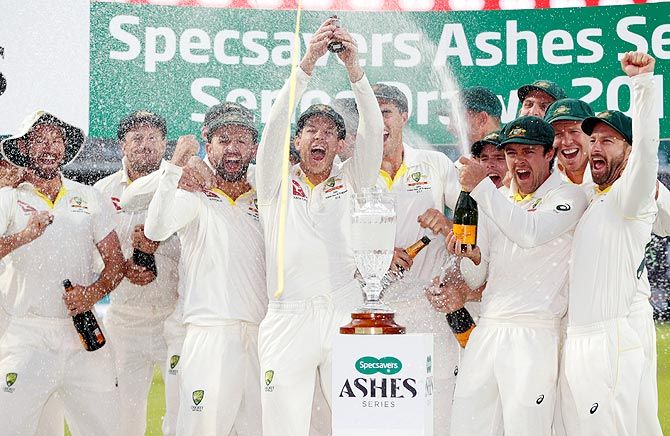
From an Indian perspective, the meaty stuff arrives early in the series. Two episodes are entirely centred on India's tour of Australia from late 2018.
A room filled with the Aussie squad is shown trying to figure out Virat Kohli while closely studying a PowerPoint presentation.
Wary of Kohli's ability to wind up the opposition, Aussie skipper Tim Paine is seen instructing his players to not engage with the Indian captain at any cost.
Langer, in an earlier sequence, stresses how the team must be able to differentiate between 'banter' and 'abuse"]'.
This, perhaps, is the most telling takeaway from The Test: an Australian side willing to err on the side of caution in the verbal stakes when history suggests otherwise.
It's also probably a confirmation of the kind of damage Sandpaper Gate caused, massively denting the reputation of an otherwise supremely successful and proud sporting nation.
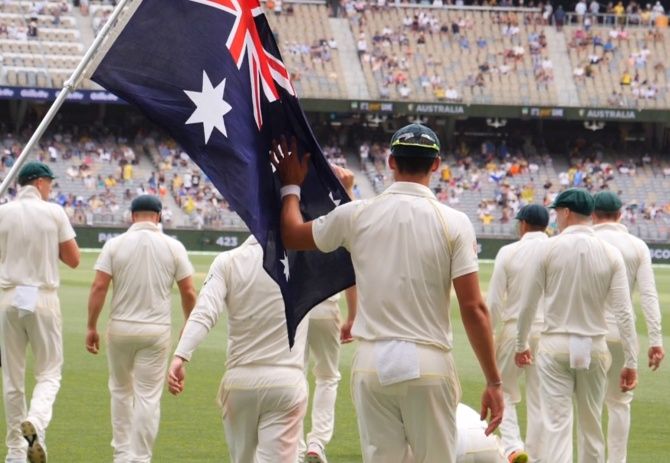
Langer is the mainstay of the film. Often under-rated and undemonstrative as a player, the former opener always had the look of a guy who would make a fabulous coach.
In The Test, he shows why, cogently breaking things down for his players and perfectly essaying the role of the archetypal nice-guy coach who is also fully capable of giving it off to his players if and when the situation demands.
His decision to get the dressing room plastered with "integrity" and "honesty" placards may not appeal to everyone, but over the course of the series, he comes across as a genuinely likeable character.
Langer's authenticity is best manifested in his love for the Lady Gaga-Bradley Cooper film A Star is Born, which finds mention more than once.
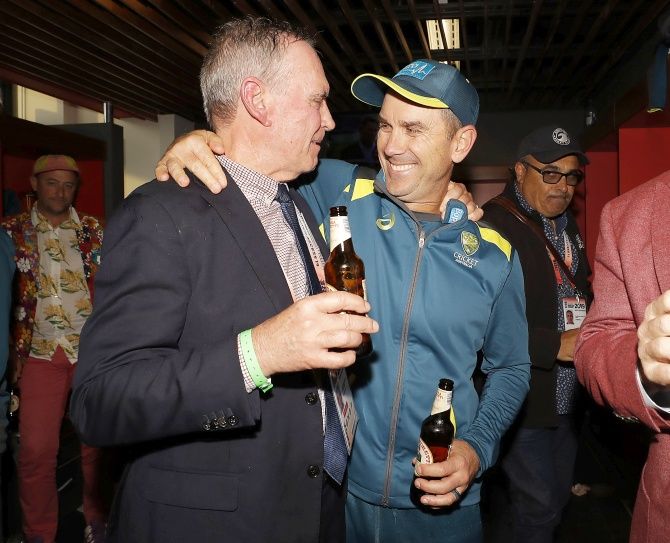
After a slight dip in the middle, the film picks up again with the return of Smith and Warner, the World Cup and later the Ashes.
By now, of course, Australia is shown to have regained some of the supremacy of old, stitching together a more than impressive run to the World Cup semi-final, with Langer's methods slowly bearing fruit.
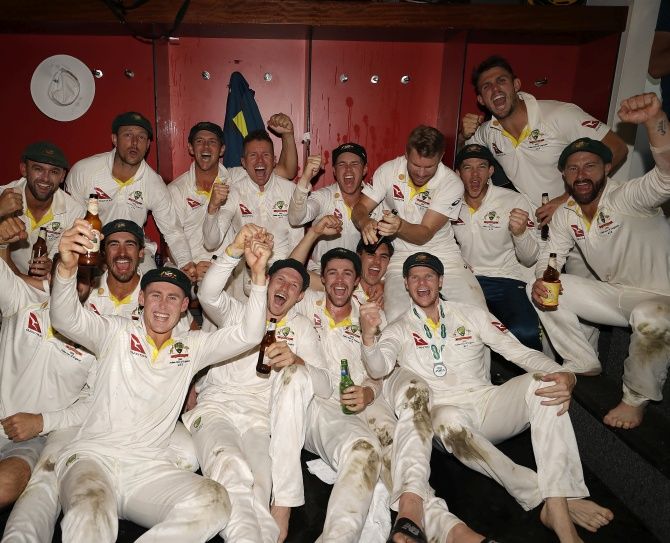
The climax, however, is reserved for the Ashes.
In some ways, the producers were lucky that they got to film an Ashes series for the ages, easily the most intense and fiercely fought since the epic summer of 2005.
Smith facing up to Jofra Archer at Lord's could have actually been made into a film of its own.
In terms of pure cinematic quality, the footage is devastatingly good: Archer galloping in, pummelling the world's best Test batsman around the ear, before felling him with a brute of a delivery.
The tension in the Aussie dressing room following Smith's collapse makes for genuinely compelling theatre.
Warner is seen informing Langer that he's been hit in the same spot that proved fatal for Phil Hughes; thankfully, Smith manages to get himself up, walk off and come out to bat again to uproarious applause.
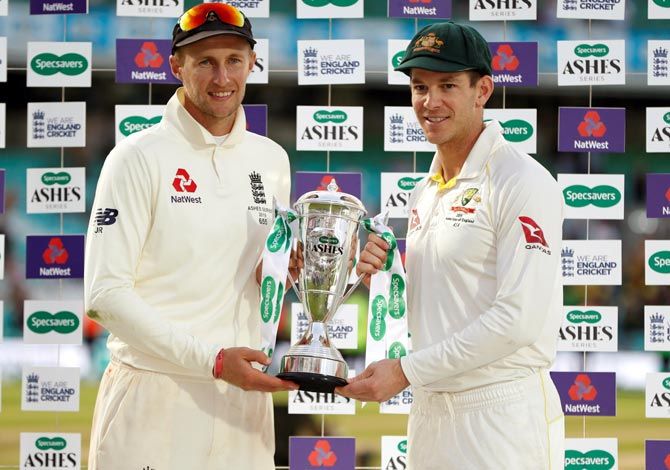
Equally dramatic is Ben Stokes and his heroics at Headingley, and Langer's subsequent frustration at Australia's feebleness in denying the England all-rounder the strike.
Langer makes it a point to show the highlights of the last hour of that crushing defeat to the entire team, an insufferable introspective exercise that almost reduces Nathan Lyon -- who missed a run-out chance to win the game for Australia -- to tears.
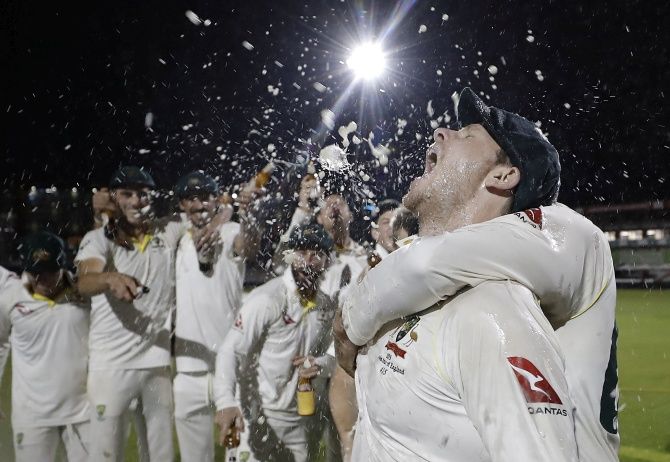
The cricket aside, The Test is worth watching for its personal stories. The most impressive of which is Marnus Labuschagne's, who only rose to prominence after he came on as a concussion substitute for Smith at Lord's.
Now almost indispensable to the Aussie team, Labuschagne's astronomical rise and camaraderie with hero Smith is the kind of gladdening content that ensures that the 45-minute long episodes -- there are eight -- never feel like a drag.
And while Langer's Australia might be nowhere close to the imperious side he was once part of, The Test is a wonderfully detailed chronicle of the development his stewardship has been able to deliver. Who knows, the new "nice guys" may finish first, after all.





